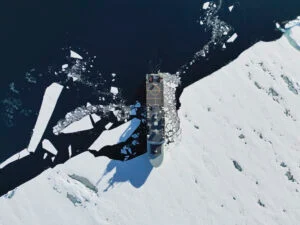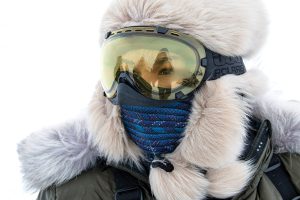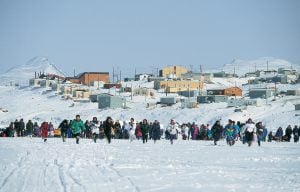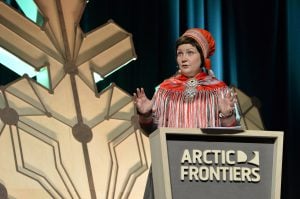
People & Culture
On thin ice: Who “owns” the Arctic?
As the climate heats up, so do talks over land ownership in the Arctic. What does Canadian Arctic Sovereignty look like as the ice melts?
- 4353 words
- 18 minutes
This article is over 5 years old and may contain outdated information.
Science & Tech

Federal Science Minister Kirsty Duncan will meet with climate change researchers in the field this week as she makes her first official visit to the Canadian Arctic since being appointed to the role in November 2015.
The five-day trip through Nunavut, which begins July 17, will see Duncan meet with community leaders in Resolute, as well as researchers working on climate change-related projects around Lake Hazen in Quttinirpaaq National Park on northern Ellesmere Island.
In an interview with Canadian Geographic, Duncan said she is hoping to draw attention to the important work being done in the field to understand the impacts of climate change on the Arctic.
“I want to highlight how seriously our government takes the issue of climate change, and the importance we place on science,” she said. “It gives me an opportunity to champion the work of northern and Arctic scientists; they provide the evidence we need to make sound policy decisions.”
Among the projects Duncan will visit are a study of the dynamics of Arctic ice caps led by University of Alberta glaciologist Martin Sharp and two studies specifically looking at Lake Hazen as a sentinel of Arctic climate change. She’ll also be looking for local perspectives on climate science and how to integrate Inuit traditional knowledge into ongoing projects.
“In previous conversations I’ve had with First Nations, Métis and Inuit leaders, they’ve made it very clear they want a different relationship,” Duncan said. “They don’t want to feel studied anymore; they want to build a respectful relationship and work together on issues of mutual concern.”
The trip comes as Duncan faces pressure from the academic community to re-evaluate how scientific research is funded in Canada. In April, a panel convened by Duncan to examine the issue concluded that Canada’s federal research apparatus is “weakly coordinated and inconsistently evaluated,” and warned that as government spending on science has flatlined, Canada’s research competitiveness on the world stage has eroded. Among the panel’s recommendations were that the government create a new National Advisory Council on Research and Innovation to oversee the system (an idea Duncan panned in June) and move quickly to appoint a Chief Science Advisor. Applications for that position closed in February.
Asked when the role might be filled, Duncan said she “looks forward to updating Canadians soon.”
Are you passionate about Canadian geography?
You can support Canadian Geographic in 3 ways:

People & Culture
As the climate heats up, so do talks over land ownership in the Arctic. What does Canadian Arctic Sovereignty look like as the ice melts?

Science & Tech
The Canadian High Arctic Research Station is set to open in Cambridge Bay, Nunavut, later this year. How will it affect our understanding and appreciation of the North and the rapid change occurring there?

History
On April 1, 1999, Canada’s youngest population took control of its largest territory. Here’s how Canadian Geographic covered the story.

Environment
The uncertainty and change that's currently disrupting the region dominated the annual meeting's agenda